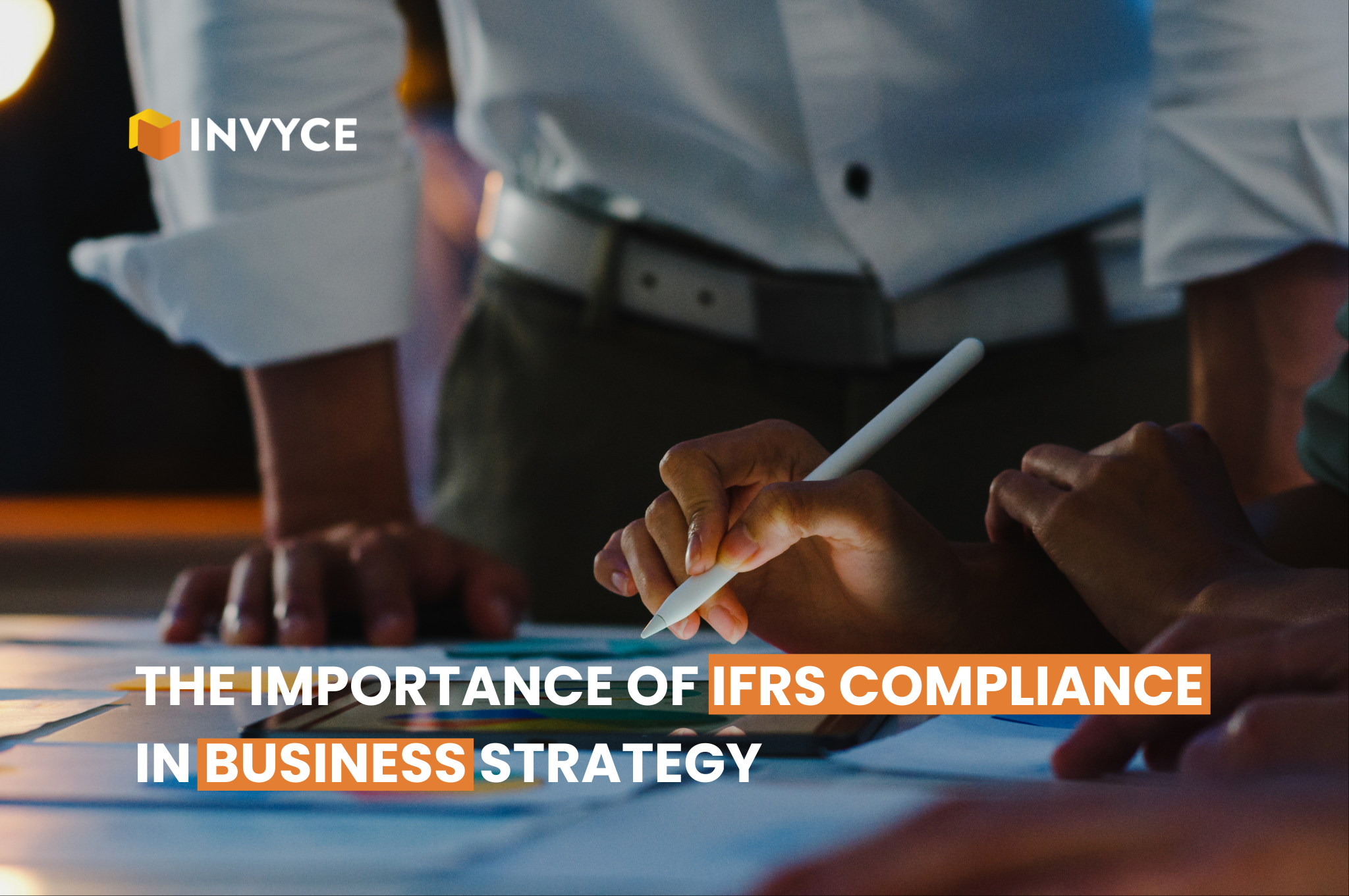25 Sep

Running a business in today’s competitive environment requires balancing several critical factors. Whether you’re focused on expanding market reach or securing major investors, each decision plays a role in shaping your company’s future. One aspect that often doesn’t get enough attention is financial reporting, particularly the importance of complying with International Financial Reporting Standards (IFRS).
The International Financial Reporting Standard is more than a regulatory requirement. The alignment of your business with these global standards helps you establish credibility, gain stakeholders’ trust, and lay the foundation for long-term success. The ability to operate internationally opens up new opportunities that would otherwise be out of reach for your business.
In what ways does IFRS compliance improve your business strategy? Explore how integrating these standards can contribute to growth and improve competitiveness.
1. Improving Decision-Making Through Financial Transparency
A clear financial statement is essential for every business leader. But IFRS takes financial clarity further by providing for transparency and global consistency. In addition to complying with regulations, you’ll improve your data’s precision and accuracy by following these standards.
Clear financials empower you to make smarter, more informed decisions. Whether you’re planning a market expansion or considering a business acquisition, IFRS gives you a real-time, accurate picture of your financial health. By knowing where your company stands–cash flow, profitability, risk exposure-you can manage opportunities with confidence.
This transparency doesn’t just benefit you. Investors, lenders, and potential partners rely on clear, understandable financial reports to assess your business. By presenting IFRS-compliant reports, you’re making it easier for them to trust your data and make faster decisions.
2. Promoting Global Growth with Transparent Financials
One of the standout benefits of IFRS is its global comparability. As businesses increasingly operate across borders, having financial reports that speak the same language as companies worldwide becomes crucial.
Consider the possibility of an acquisition in Europe or a partnership in Asia. No matter where you operate, IFRS compliance ensures that your financials are easy to understand. It simplifies the process, saving you time and removing confusion caused by different accounting standards.
If you are looking to expand internationally, IFRS compliance will make you more attractive to global investors and partners. If they do business with you, they know they’re dealing with a company that follows global best practices.
3. Increasing Investor Confidence with Financial Integrity
Attracting investors, especially from international markets, requires more than just a good pitch.it requires trust. Investors are looking for businesses that demonstrate transparency, reliability, and a commitment to growth. IFRS compliance shows that your business is serious about maintaining financial integrity.By using IFRS, you signal that your financials are reliable and aligned with global standards. In addition to simplifying due diligence for investors, this also speeds up their decision-making process. They can confidently invest in your business knowing they’re working with reliable, clear data.
4. Improve Internal Decision-Making
While IFRS is often associated with external reporting, its benefits extend inward as well. By improving the accuracy and standardization of your financials, IFRS helps you make better decisions within your company.With IFRS-compliant reports, you gain a more detailed view of your financial position. This allows you to identify areas of profitability, pinpoint where costs are outpacing revenue, and focus on growth opportunities. Whether you’re evaluating a new project, planning investments, or managing risks, IFRS gives you the data needed to make informed choices.
Moreover, IFRS encourages forward-thinking by requiring businesses to account for potential risks-not just past losses. This proactive approach helps you anticipate challenges before they arise, keeping your business resilient and adaptable.
5. Building a Stronger Reputation with Stakeholders
Nowadays, reputation is everything when it comes to business. Whether you’re dealing with investors, customers, or partners, how you’re perceived can make all the difference. IFRS compliance plays a important role in shaping that perception.IFRS standards demonstrate your commitment to transparency and financial responsibility. This builds trust and sets you apart from competitors who may not meet the same standards. A strong reputation for financial integrity is an asset that can open doors, reduce risk, and build long-lasting relationships.Compliance with IFRS also minimizes the risk of regulatory issues, particularly in heavily regulated industries. If you maintain these standards, you will be able to avoid penalties or damage to your reputation, allowing you to focus on growth instead of legal issues.
Conclusion
The requirements of IFRS compliance go far beyond meeting regulatory requirements. It’s a strategic asset that can help you build trust, improve decision-making, and position your business for growth in an increasingly global market.
By aligning your financials with IFRS, you’re not just fulfilling obligations but actively enhancing your company’s credibility and competitiveness. From smoother international deals to quicker investor decisions, IFRS opens the door to opportunities that promote long-term success. As you look toward future growth, consider how IFRS compliance can be the key to reaching your business’s full potential.
Marjina Muskaan has over 5+ years of experience writing about finance, accounting, and enterprise topics. She was previously a senior writer at Invyce.com, where she created engaging and informative content that made complex financial concepts easy to understand.
Related Post
Copyright © 2024 – Powered by uConnect



Marjina Muskaan